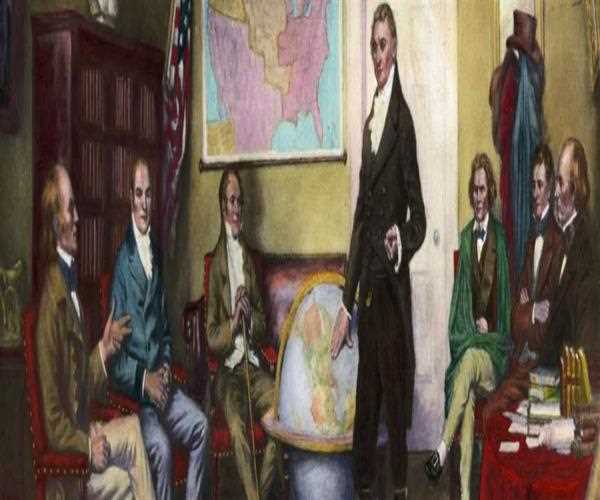Monroe Doctrine was minimally noted by the Great Powers of Europe, yet in the long run turned into a longstanding precept of U.S. remote arrangement. Monroe and his Secretary of State John Quincy Adams drew upon an establishment of American discretionary standards, for example, unraveling from European undertakings and barrier of unbiased rights as communicated in Washington's Farewell Address and Madison's expressed method of reasoning for pursuing the War of 1812.

The three fundamental ideas of the convention—isolate authoritative reaches for the Americas and Europe, non-colonization, and non-mediation—were intended to mean an unmistakable break between the New World and the dictatorial domain of Europe.
Monroe's organization admonished the majestic European forces against meddling in the undertakings of the recently free Latin American states or potential United States regions.
While Americans by and large questioned European settlements in the New World, they likewise wanted to increment United States impact and exchanging binds all through the area to their south. European mercantilism represented the best deterrent to the monetary extension.
Specifically, Americans expected that Spain and France may reassert expansionism over the Latin American people groups who had simply toppled European run the show. Signs that Russia was extending its essence southward from Alaska toward the Oregon Territory were additionally unsettling.
As far as concerns them, the British additionally had a solid enthusiasm for guaranteeing the death of Spanish expansionism, with all the exchange limitations mercantilism forced. Secretary of State John Quincy Adams, nonetheless, overwhelmingly contradicted collaboration with Great Britain, battling that an announcement of two-sided nature could constrain United States development later on. He likewise contended that the British were not dedicated to perceiving the Latin American republics and more likely than not had magnificent inspirations themselves.
The respective articulation proposed by the British in this way turned into a one-sided affirmation by the United States. As Monroe expressed: "The American mainlands … are hereafter not to be considered as subjects for future colonization by any European forces." Monroe illustrated two separate effective reaches: the Americas and Europe.
The free grounds of the Western Hemisphere would be exclusively the United States' area. In return, the United States swore to maintain a strategic distance from association in the political issues of Europe, for example, the progressing Greek battle for freedom from the Ottoman Empire, and not to meddle in the current European provinces as of now in the Americas.
By the mid-1800s, Monroe's assertion joined with thoughts of Manifest Destiny, gave a point of reference and support to U.S. extension on the American mainland. In the late 1800s, U.S. monetary and military power empowered it to authorize the Monroe Doctrine.
The principle's most prominent expansion accompanied Theodore Roosevelt's Corollary, which modified the first importance of the convention and came to legitimize one-sided U.S. intercession in Latin America.